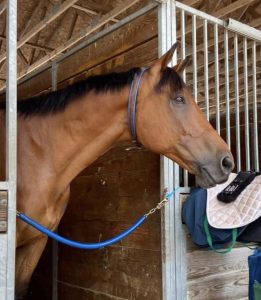Uncategorized
Keeping Horses Safe with Incoming Bad Weather
As a horse owner, it’s important to have an emergency plan in place for times when the weather forecast looks bad. Horse owners must be prepared for storms of all kinds including tornado warnings, hail, extreme wind, lightning, flooding and the power outages that can follow severe weather.
A fully stocked equine first aid kit and should already be in every barn, but with incoming storms it’s important to have additional items. Additional items would include things that would be helpful for repairing damages to the barn and fences following the storm and plenty of fresh water and feed to last a few days. Fresh water for situations like this can be stored in water storage containers, extra buckets and gallon jugs.
Additionally, before any bad weather is on the way, always make sure to have a recent picture of each horse. These can be used to help identify your horses if they are to get out of your property.
Leading up to the bad weather:
-Follow the weather forecast so you can be prepared for the different types of severe weather you might expect. Depending upon the expected incoming weather, evacuating horses to a safe location might be a good option.
-Make sure your horses have proper identification on them. We recommend a leather breakable halter or neck strap with their name, your phone number and your veterinary clinic name and phone number. Make sure that this is a leather/breakable halter! Another option is to braid identification tags into their manes and tails. Cattle ear tags work well for this.
-Ensure that your fences and gates are all in good condition.
-Tie down or bring in items that could become flying objects with severe wind.
-Determine if it will be best to keep horses inside or outside. There are multiple different factors to take into consideration when determining if it’s best to keep your horses inside or turn them out for bad weather. Some of these factors include: type of weather incoming, stability of your barn vs. your fencing, individual horses temperament and physical abilities.
-It’s often recommended to turn horses out when facing tornado warnings as this allows the horses to use their own natural instincts to keep themselves safe. We always recommend talking with your veterinarian about your tornado plans well in advance of bad weather. During this discussion you can discuss if it is best for your horses to be in the barn or outside. Your veterinarian can also discuss with you if any particular horses need pharmaceutical help to stay calm during storms.
After the storm:
Once the storm has passed and it is safe to do so, carefully check all horses for signs of injury or distress. Also check for damage to the barn and fencing that might need to be repaired.
Resources:
University of Kentucky Equine Emergency and Disaster Preparedness

